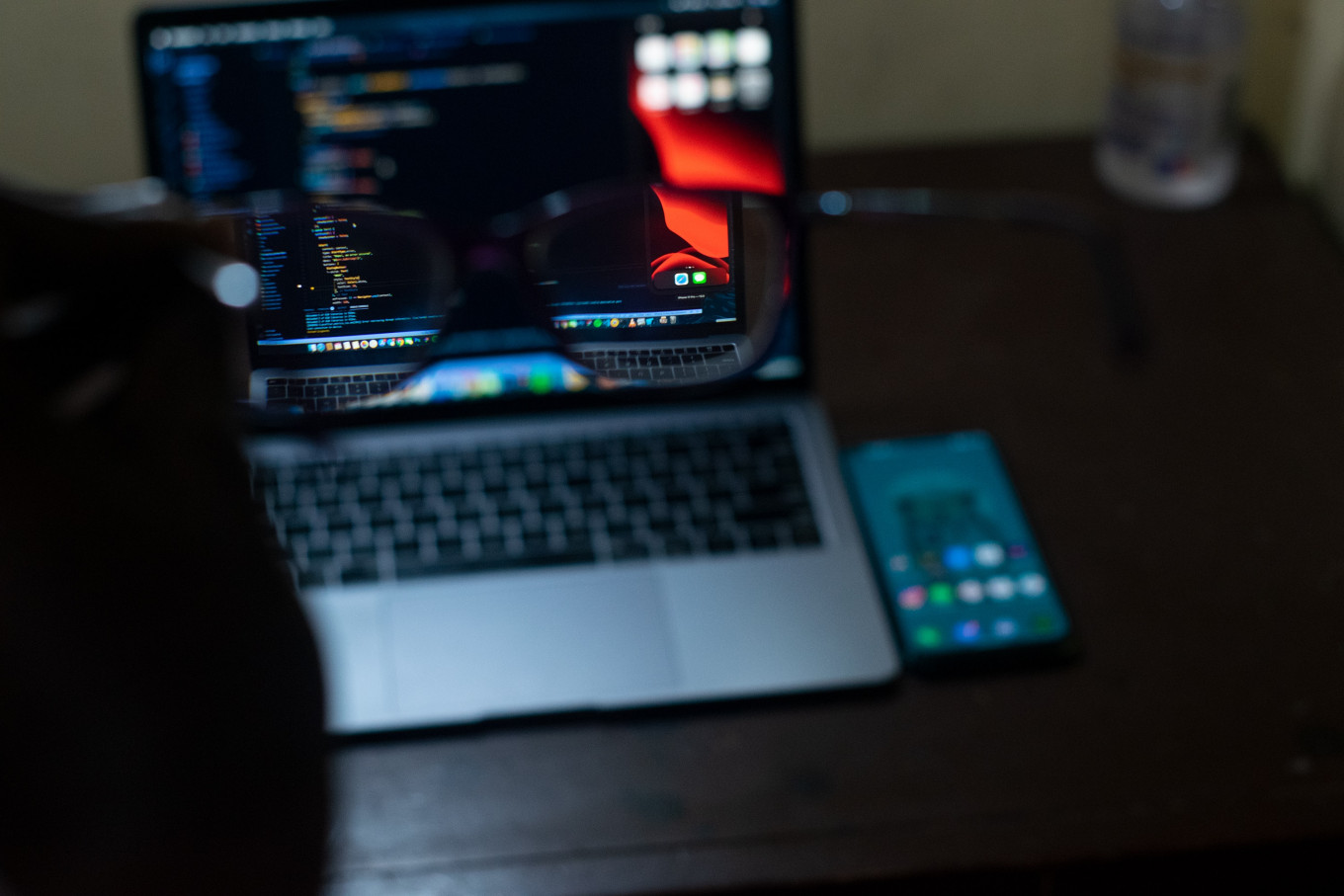Popular Reads
Top Results
Can't find what you're looking for?
View all search resultsPopular Reads
Top Results
Can't find what you're looking for?
View all search resultsCyber policy critics targeted in cyberattacks
Change text size
Gift Premium Articles
to Anyone
G
overnment critics have once again been targeted by digital attacks following a wave of online protests opposing the Communications and Information Ministry’s move to block access to popular digital service providers that had failed to comply with government regulations.
A group of digital security activists, Tim Reaksi Cepat (Trace) received 10 complaints of digital attacks in the form of digital intimidation and attempts to take over WhatsApp and Telegram accounts by unidentified parties after an online discussion on Twitter Space on Saturday.
The discussion, #BlokirKominfo (block the Communications and Information Ministry), was held in opposition to the licensing policy that grants the government authority to block access to noncompliant digital service providers, take down prohibited content and access users' data for law-enforcement purposes.
Cyber security consultant Teguh Aprianto of Ethical Hacker Indonesia who is also part of Trace, was hosting the Twitter Space, with at least 27,000 listeners, including Muhammad Isnur of the Indonesian Legal Aid Foundation (YLBHI) and gamer and comedian Tretan Muslim.
“Tretan Muslim had just given a brief talk during the Space, but not long after he received a bunch of spam messages and threats. There was another participant who asked a question, he also received threats and messages with offensive language," Teguh said.
Same pattern
This is not the first time digital attacks have targeted those voicing criticism of government policies.
Last year, activists voicing opposition to the controversial civics test faced digital attacks in the form of zoombombing and ride-hailing account hacking. During protests at the Job Creation Law, some students became victims of credential theft.
The National Commission on Human Rights (Komnas HAM) released a report earlier this year that digital threats against free speech have become increasingly prominent in the past two years, with 18 accounts being hijacked.
Digital rights watchdog Southeast Asia Freedom of Expression Network (SAFEnet) recorded 193 digital attacks last year.
Teguh described the recent attack as ironic given that the government boasted of protecting Indonesian internet users' data, but what happened instead was that unidentified parties were able to obtain private data of protesters against the ministry's policy in order to launch attacks.
He added that the attacks seemed to mesh into a pattern and appeared to be driven by a consistent motive: harassing government critics and engaging in efforts to silence critical voices, fueling concerns about shrinking space for dissent in the country.
"The ministry claims to protect the public. But looking back they never do so as several investigations into data-breach cases have not been solved," Teguh said.
Amnesty International Indonesia deputy director Wirya Adiwena urged the government to take the digital attacks seriously otherwise they will further shrink civic space.
"If the authorities don't take this case seriously, it's tantamount to allowing and justifying the increasing silencing of critics and restrictions on freedom of expression."
Iron fist
On Tuesday, the Communications and Information Ministry reopened access to popular electronic services providers (ESPs) PayPal, Valve Corp and Yahoo following a backlash, especially on social media.
United States-based multinational financial technology company PayPal said on Wednesday that it had complied with the government in registering with the system.
Communications and Information Minister Johnny G. Plate also said on Wednesday that the ministry had banned 15 gambling sites after carrying out an audit.
As of Wednesday afternoon, the ministry reported that 9,308 domestic ESPs had signed up to the government system, as well as 289 foreign ESPs.
The blocking of access to any ESP that failed to register is in line with Ministerial Regulation No. 5/2020 on private ESPs.
The rule stipulates that all registered platforms must take down content that "incites unrest" or "disturbs public order" within 24 hours of receiving a ministry instruction, and four hours for content containing child pornography or messages supporting terrorism. Platforms that ignore such orders face the risk of blocking.
The rule also grants the government access to ESPs' electronic systems and the personal data of Indonesians for supervision or law-enforcement purposes – without the need for a court warrant.
"The mandatory obligation is one form of increasing ESP accountability in Indonesia,” Johnny told journalists.
Activists have called on the government to revoke the ministerial regulation to prevent it from being used to stifle free speech and ensure that incidents of digital intimidation are thoroughly investigated.










